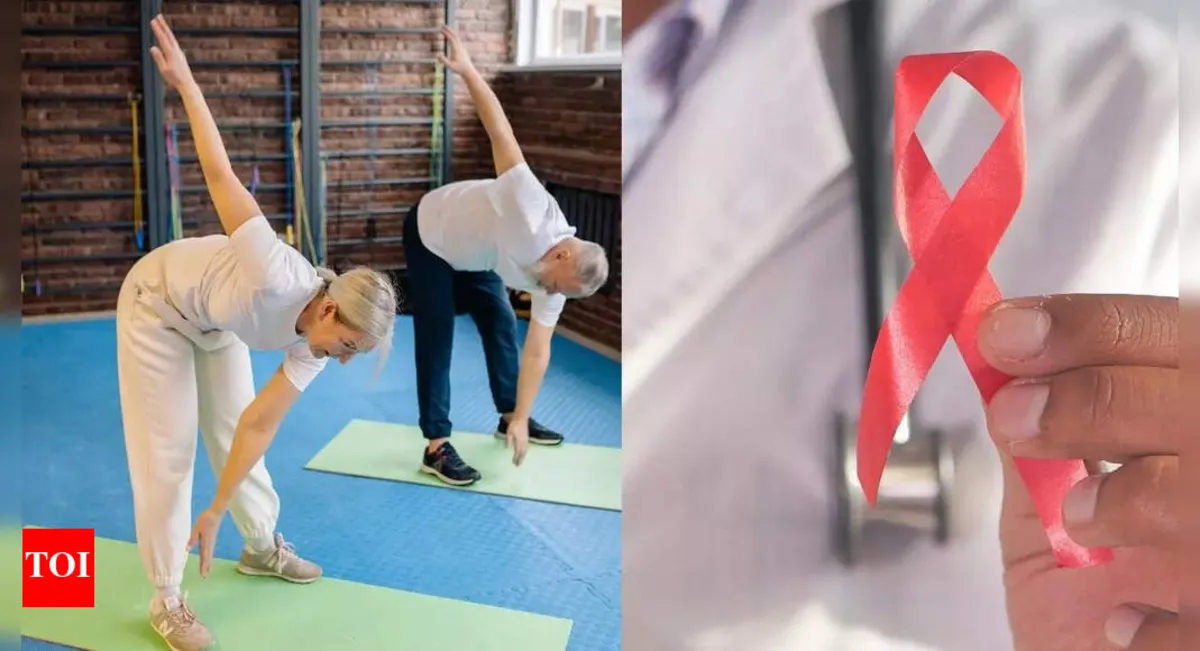
A groundbreaking study has revealed that regular exercise significantly enhances outcomes for cancer patients, particularly those diagnosed with colon cancer. The research indicates that patients who engaged in structured exercise experienced a 28% lower risk of cancer recurrence and an impressive 37% reduction in death risk.
In addition to its impact on cancer, regular exercise offers numerous health benefits, including a reduced risk of chronic diseases such as diabetes and heart disease. A recent study published in the New England Journal of Medicine found that cancer patients who participated in a structured exercise program not only lived longer but also had better outcomes, including a lower risk of cancer recurrence and mortality.
The findings from this study suggest that incorporating exercise into cancer treatment plans is essential. By integrating structured exercise into their care, cancer patients can potentially enhance their survival rates and diminish the likelihood of cancer recurrence. This study emphasizes how regular exercise can lower the risk of cancer recurrence significantly.
The clinical trial, conducted across multiple countries, followed nearly 900 patients diagnosed with stage II and stage III colon cancer. These participants had completed surgery and chemotherapy and were divided into two groups. One group received structured exercise coaching twice monthly for the first six months, followed by monthly sessions for three years, while the other group received standard care without specific exercise guidance.
The results of the study were remarkable. Participants in the exercise group demonstrated a 28% lower risk of cancer recurrence or the development of a new cancer. More importantly, they exhibited a 37% lower risk of death from any cause during an eight-year follow-up period. Additionally, cardiovascular fitness and endurance improved significantly in the exercise group, as evidenced by enhanced performance in the six-minute walk test and VO₂ max results.
According to Dr. Leana Wen, who spoke with CNN about the study, the potential for exercise to revolutionize cancer treatment is significant. She noted that the findings indicate that exercise can drastically reduce the risk of recurrent or new cancers as well as mortality. Currently, patients often receive generic advice to exercise post-treatment, yet many do not obtain structured support. Dr. Wen advocates for exercise prescriptions for patients and suggests that healthcare providers regularly monitor their progress. Furthermore, she posits that insurance companies should consider covering health coaching for cancer patients, which could alleviate the need for more expensive treatments.
Dr. Wen explains that exercise does more than promote well-being; it induces changes in the body at both cellular and hormonal levels. These changes help to:
Regulate hormones such as insulin and estrogen, which are linked to cancer growth. Reduce chronic inflammation, a significant factor in cancer progression. Enhance immune function, bolstering the body’s ability to detect and eliminate abnormal cells. Support a healthy body weight, a crucial element in preventing cancer recurrence.This multifaceted impact makes exercise a powerful, non-pharmacological tool for improving cancer outcomes and underscores the importance of structured exercise in cancer recovery strategies.
Incorporating regular exercise into treatment plans for cancer patients can lead to improved health and longevity. This groundbreaking study highlights the crucial role of structured exercise in reducing cancer recurrence and mortality, paving the way for a new approach in cancer treatment protocols.
For more updates and insights, follow us on social media.